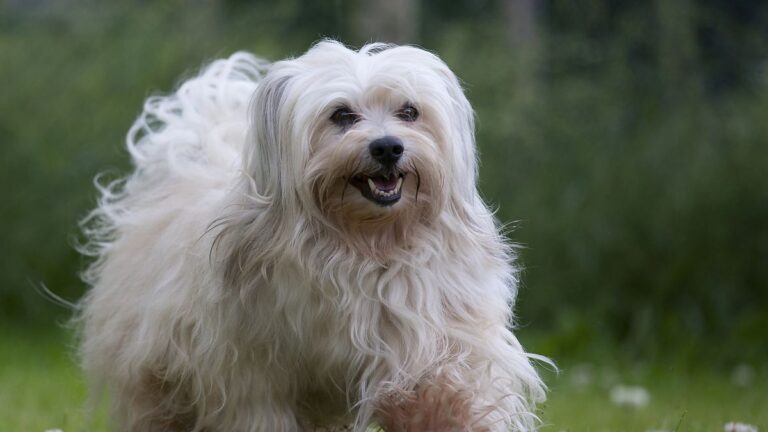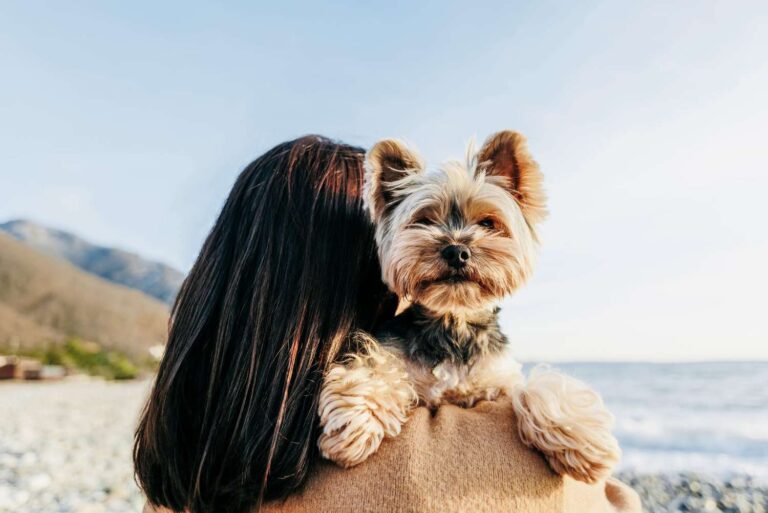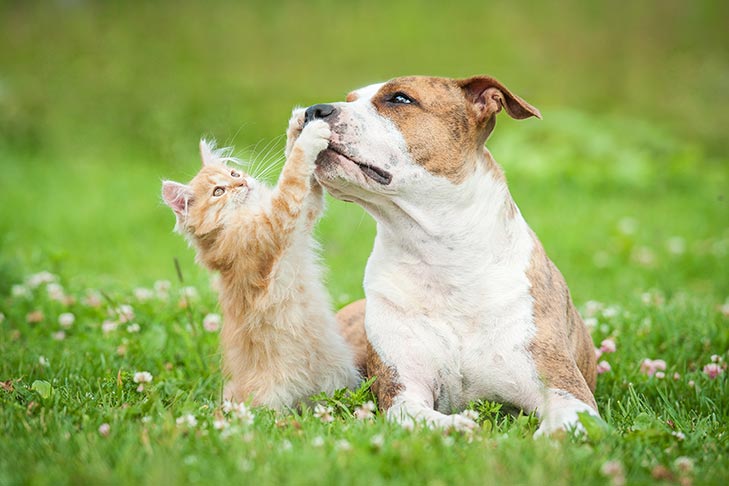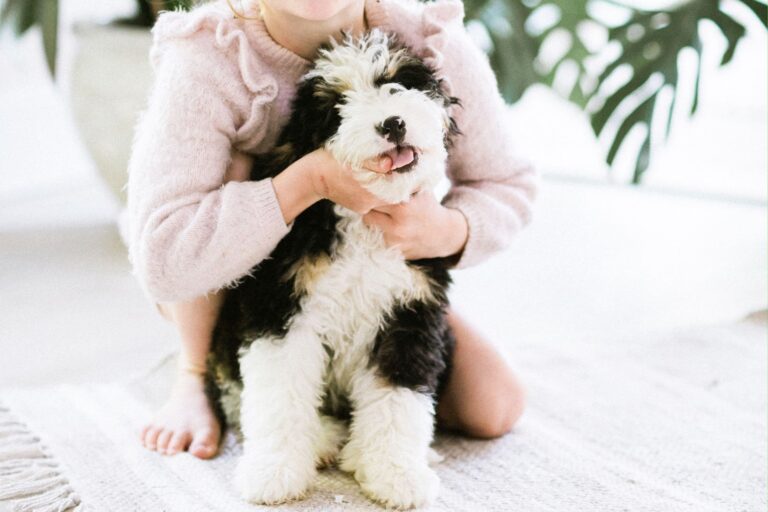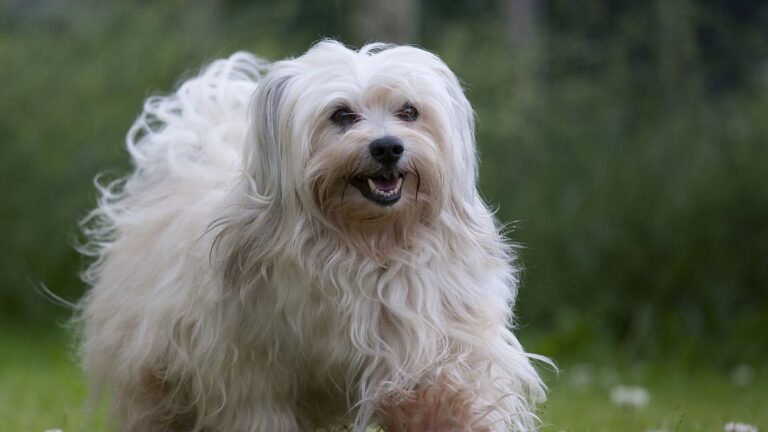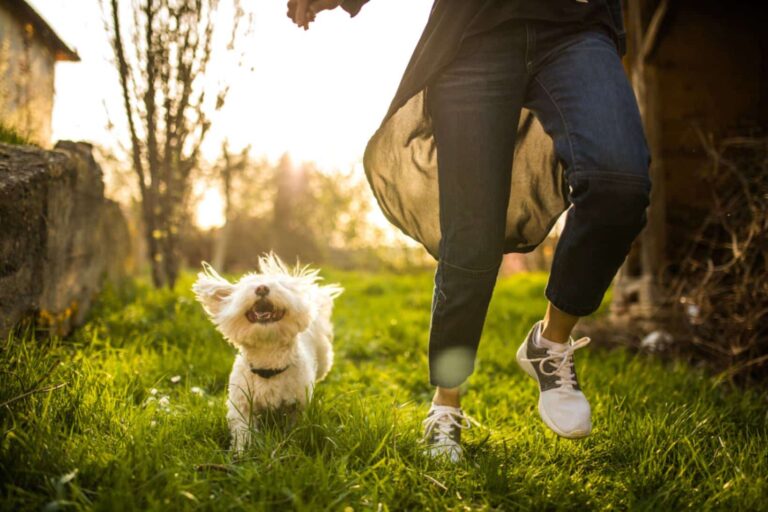What Small Dog Breeds Can Be Left Alone: Top Independent Companions
Last Updated on April 15, 2024 by Petpalace54
Chihuahuas, French Bulldogs, and Pugs are small dog breeds that can generally tolerate being left alone for short periods of time. Thus, owning and taking care of a dog can be challenging, especially if you have a busy lifestyle or work long hours.
What Small Dog Breeds Can Be Left Alone? One of the most significant challenges dog owners face is leaving their furry friends alone at home. Although most dogs thrive on human interaction and attention, some breeds can handle being alone for short periods better than others. Small dog breeds, in particular, are often considered a good choice for busy owners since they require less space and exercise than larger dogs.
However, not all small dog breeds are suitable for being left alone. We’ll discuss which small dog breeds can be left alone & some useful tips for keeping your pup happy and healthy when you’re away.
Table of Contents
Traits Of Small Dog Breeds
Small dog breeds such as Chihuahuas, Pomeranians, and Shih Tzus can be left alone for short periods. However, separation anxiety can be a concern for some breeds. Providing interactive toys & training them to be comfortable alone can help prevent anxiety behaviors.
Small dogs are often the perfect pets for apartment dwellers as they are low-maintenance, loyal, & adorable. However, one of the most important factors to consider before getting a small dog is how well they can be left alone. Certain breeds can handle being alone for longer periods than others. Below are some traits of small dog breeds that can tolerate being left alone for a significant duration of time.
Independent Nature
If you ask what Small Dog Breeds Can Be Left Alone; actually, many small dog breeds are known for their independent nature, meaning they do not require constant attention from their owners. They are capable of amusing themselves while left alone and do not get anxious or anxious when their owners are away. Hence, breeds like the Chihuahuas, Basset Hounds, and Lhasa Apsos make great pets for busy families as they are happy to spend time alone.
Low Exercise Requirements
Small dogs that require only a limited amount of exercise, are perfect for individuals who work long hours. These dogs are happy to spend their time relaxing or sleeping around the house. They do not need a lot of space or physical activity to stay content. Therefore, breeds like the Shih Tzus, Pugs, and Bulldogs enjoy minimal exercise requirements, making them suitable for owners who cannot give their pets sufficient workout sessions.
If you are looking for a low-maintenance companion that can be left alone, then a small dog might be the perfect option for you. By choosing a breed with an independent nature and low exercise requirements, you can ensure that your pet will be happy and healthy, even when you’re not around. Just remember, regardless of the breed, make sure to provide your pet with plenty of food, water, and toys to keep them entertained during your absence.
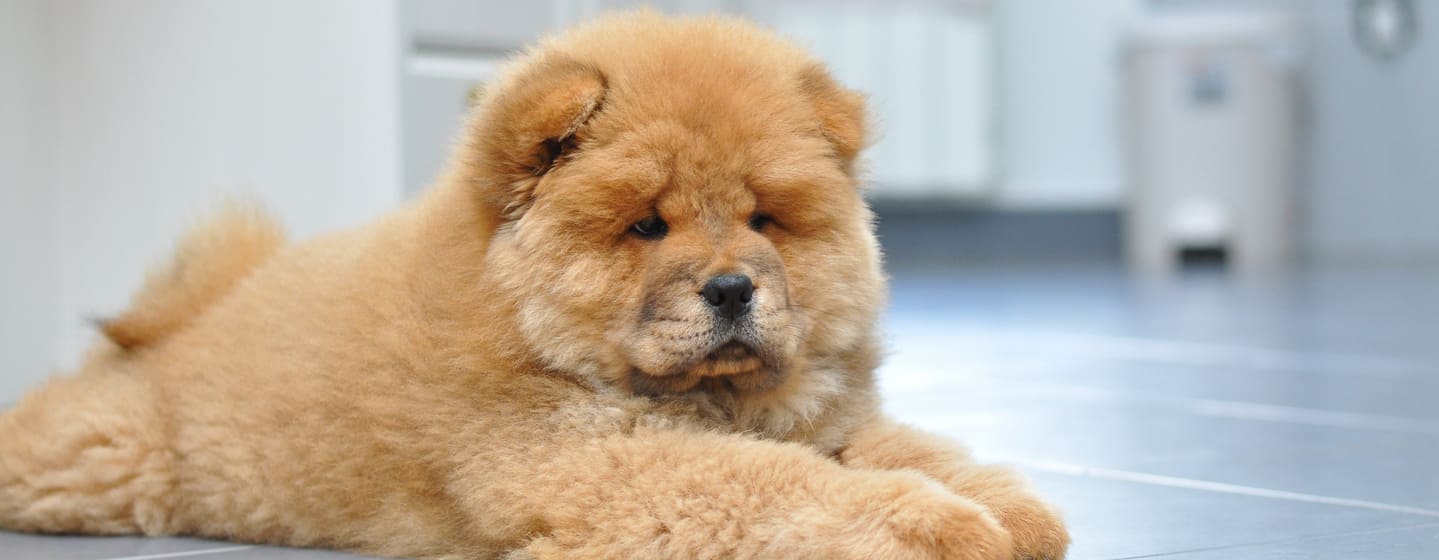
Credit: www.purina.co.uk
Top 5 Small Dog Breeds That Can Be Left Alone
Small dogs are perfect for people with busy lifestyles, but what if you need to leave them alone? Here are the top 5 small dog breeds that can handle being alone for a few hours: Chihuahua, French Bulldog, Yorkshire Terrier, Pug, and Maltese.
These breeds are independent, low-maintenance, and can adapt well to being alone.
If you are considering getting a pet but work long hours or have a busy lifestyle, then getting a small dog that can be left alone for a few hours may be the right choice for you. Small dog breeds that are independent and can manage by themselves can be a great option for individuals and families who don’t want to give up their jobs and social lives. Here are the top 5 small dog breeds that can be left alone.
- The Chihuahua is the smallest breed of dog and is a great choice for those who live in small apartments or houses. They are very independent, energetic, & don’t require much attention. They are very well-behaved, intelligent, and are easily trained. Chihuahuas can be prone to separation anxiety, so it is important to make sure they have plenty of toys and stimulation while you are away.
- The French Bulldog is a small breed of dog that is known for its affectionate and playful temperament. They are very low-maintenance and can be left alone for several hours without any problems. French Bulldogs are also great for apartment living, as they don’t require much space to play. They are friendly, easy to train, and make great companions for those who work long hours.
- The Bichon Frise is a small breed of dog that is known for its friendly personality and cheerful disposition. They are very adaptable and do well in a variety of living situations, including apartments and houses. Bichon Frises don’t require much exercise or attention and can be left alone for several hours. They are also hypoallergenic, making them a great choice for those with allergies.
- The Shih Tzu is a small breed of dog that is known for its friendly and outgoing personality. They are very adaptable and can handle being left alone for several hours without causing any problems. Shih Tzus are also very low-maintenance, requiring very little exercise and grooming. They are great companions for those who live in small spaces and don’t have a lot of time for frequent walks.
- The Pug is a small breed of dog that is known for its playful and affectionate personality. They are great for apartment living, as they don’t require much space to play. Pugs are also very low-maintenance and can be left alone for several hours without any issues. They are energetic, loyal, and make great companions for those who work long hours.
In conclusion, these are the top 5 what Small Dog Breeds Can Be Left Alone. If you’re looking for a companion that won’t require too much attention and can handle being alone for a few hours, then these breeds are a great choice. However, it is important to remember that every dog is different, & some may require more attention than others. Before getting a dog, make sure you do your research and choose a breed that fits your lifestyle and personality.
1. Chihuahua
The Chihuahua is a small dog breed that is independent and can be left alone for short periods of time. They have a big personality despite their small size and make great apartment dogs.
Coat Varieties
Chihuahuas come in two coat varieties, long-haired and short-haired. The short-haired Chihuahua is easier to maintain, while the long-haired Chihuahua requires regular grooming to avoid tangles & matting. Both coat varieties shed moderately, which makes them good choices for people with allergies.
Temperament
Chihuahuas have a reputation for being yappy, hyperactive, and aggressive. However, this behavior is due to poor training and socialization. With proper training, Chihuahuas can be well-behaved, friendly, & sociable. Chihuahuas are fiercely loyal to their owners and have a tendency to be a one-person dog.
Training Tips
Training a Chihuahua requires patience, consistency, and positive reinforcement. Positive reinforcement includes praising your Chihuahua with treats and gentle pats, which encourages good behavior. Like all small dogs, Chihuahuas may be prone to separation anxiety, which can lead to destructive behavior. To prevent this, owners should gradually increase the amount of time they spend away from their dogs.
In conclusion, Chihuahuas are an excellent choice for people who need a loyal and affectionate companion. With proper training, grooming, and socialization, Chihuahuas can thrive in any environment & can be left alone for short periods of time.

Credit: www.womansday.com
2. French Bulldog
The French Bulldog is a small dog breed that can be left alone for a few hours. They are independent & don’t require much exercise, making them ideal for those who work long hours. Other small breeds that can be left alone include the Chihuahua and Yorkshire Terrier.
French Bulldog is a popular small dog breed known for its affectionate personality and charming looks. These dogs are a great choice for busy individuals or families looking for an easygoing pet that can be left alone for short periods.
Personality Traits
French Bulldogs are playful and affectionate dogs that love to be around people. They are known for their loyalty, adaptability and get along great with children and other pets. These dogs are also low maintenance & don’t require a lot of exercise, which makes them ideal for apartment dwellers or those with busy schedules.
Adaptability
French Bulldogs are adaptable dogs that can thrive in a variety of living arrangements. They do well in small apartments & homes with or without a yard. These dogs are also great for individuals or families who are frequently on the go, as they are easy to travel with and do not require a lot of space or exercise.
Training Considerations
French Bulldogs are intelligent dogs that are eager to please their owners. They are generally easy to train and respond well to positive reinforcement techniques. However, French Bulldogs can be stubborn at times, so consistent training and positive reinforcement are important to ensure success.
When training your French Bulldog, it’s important to keep training sessions short and engaging. These dogs have short attention spans, so keeping training sessions fun and interesting is key. Training your French Bulldog to be comfortable alone for short periods should also be a part of their training regimen.
In conclusion, French Bulldogs are an excellent small dog breed to consider if you’re looking for a pet that can be left alone for short periods. These dogs are affectionate, adaptable, & easy to train, making them a great fit for individuals or families with busy schedules or those living in small apartments.
3. Bichon Frise
The Bichon Frise is a small dog breed that can be left alone for short periods of time. They are sociable by nature, but with proper training & care, they can adapt well to spending time alone at home. Their size and low exercise requirements make them suitable for apartment living.
The Bichon Frise is a small and affectionate breed that makes for a great companion. They are known for their curly white coat and lively personality. If you are considering getting a Bichon Frise but have concerns about leaving them alone, then read on to learn about their temperament, grooming needs, and health considerations.
Temperament
Bichon Frises are known for their friendly and outgoing personalities. They love to be around people & get along well with children and other pets. As a highly social breed, they can experience separation anxiety if left alone for too long. However, with proper training & socialization, they can learn to feel comfortable by themselves. It’s important to remember that no dog should be left alone for extended periods of time.
Grooming Needs
The Bichon Frise coat requires frequent grooming to prevent matting and tangling. Daily brushing is recommended, & regular professional grooming appointments are a must. They also need regular bathing to keep their coat clean and white. Bichons also need their ears cleaned regularly to prevent infections. Their nails should be trimmed every three to four weeks.
Health Considerations
Bichon Frises are generally healthy but can be prone to certain health issues. Eye problems, such as cataracts, glaucoma, & progressive retinal atrophy, can occur. They may also develop skin allergies and respiratory issues, such as tracheal collapse. Regular veterinarian check-ups and preventative care can help keep your Bichon Frise healthy and happy.
In summary, Bichon Frises can be left alone but needs proper training and socialization. They require frequent grooming, including daily brushing and regular trips to the groomer. They can be prone to certain health issues, but with proper care, they can live a long and healthy life.
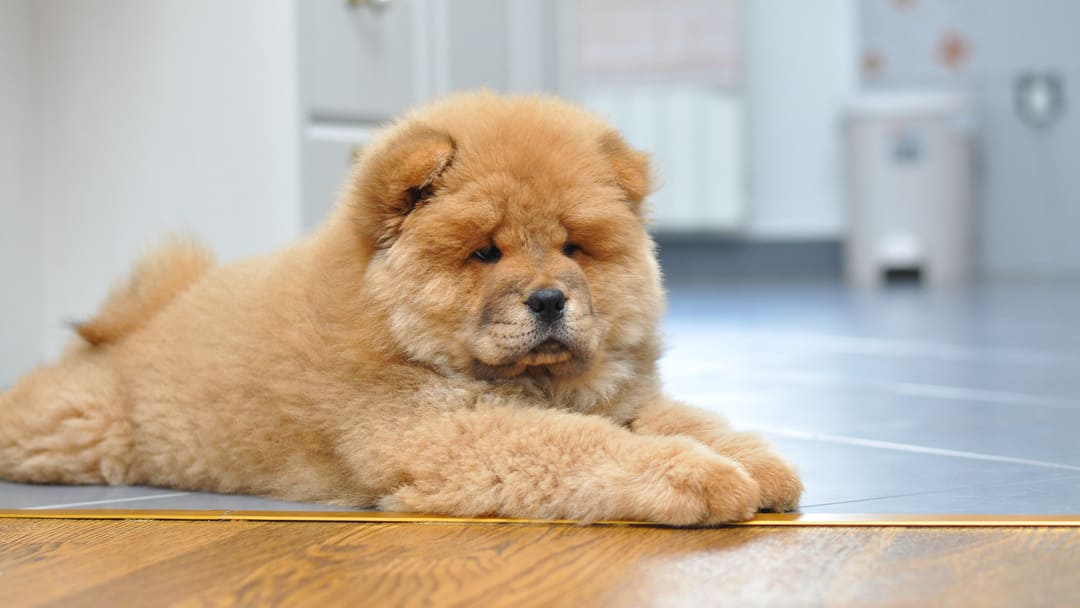
Credit: www.purina.co.uk
4. Shih Tzu
Shih Tzu is a small, affectionate breed that can handle being left alone for short periods of time. They are quiet dogs, making them suitable for apartment living. However, it is important to ensure they have adequate exercise & attention when you are not home.
Shih Tzus are one of the most popular small dog breeds and are known for their cute and cuddly appearance. However, before bringing home a Shih Tzu, it is important to know if they can be left alone. Since Shih Tzus are known for their loyalty and affectionate nature, they may be prone to separation anxiety. In this section, we will explore the history, temperament, and training needs of the Shih Tzu breed to determine if they can be left alone.
History
The Shih Tzu breed originated in China & was bred as a companion dog for royalty. Its name translates to “little lion,” which speaks to its regal heritage. The breed has a long history that dates back to the 17th century & has since gained immense popularity around the world. Today, Shih Tzu is a beloved breed that is often found in households of all sizes.
Temperament
Shih Tzus have a friendly and affectionate temperament, which makes them an excellent companion dog. However, they do require attention from their owners and may become anxious if left alone for long periods. They are known to bond closely with their owners and may suffer from separation anxiety, which can lead to destructive behavior & excessive barking. Therefore, it is essential to train them correctly to ensure they feel secure when left alone.
Training Needs
Training a Shih Tzu requires patience and consistency. They respond well to positive reinforcement techniques and may become stubborn if scolded. Start with simple commands like sit, stay, and come and gradually progress to more complex ones. Additionally, crate training may be beneficial for your Shih Tzu as it provides a sense of security & personal space to the dog. However, ensure not to leave your dog in the crate for extended periods.
In conclusion, Shih Tzus can be left alone, but it requires proper training and attention to their needs. As an affectionate breed, they may become anxious when left alone for long periods & may resort to destructive behavior. Thus, it is essential to provide them with a secure and comfortable environment and a training routine that caters to their specific needs.
5. Pug
The Pug is a small dog breed that can be left alone for short periods of time. They are independent & low-maintenance, making them a great choice for busy people who still want the companionship of a furry friend.
Pugs are known as “clowns” of the small dog breed world. They are small, affectionate, and playful dogs that have been around since ancient Chinese times. Pugs are a popular breed because of their distinctive looks: stout bodies, wrinkly faces, curly tails, and short legs. However, their personality traits and exercise requirements make them an excellent choice for those who need a low-maintenance pet.
Origins
Pugs originated in China over 2,000 years ago and were brought to Europe in the 16th century by Dutch traders. They were initially bred as lapdogs for Chinese nobility & continued to be a popular pet among European royalty. Pugs were recognized by the American Kennel Club in 1885 and have since become one of the most popular small dog breeds in the United States.
Personality Traits
Pugs have a friendly and outgoing personality that makes them excel as a family pet. They are affectionate and love to be around their owners, often referred to as “velcro dogs” because of their loyalty. Pugs are intelligent dogs, and their easy-going nature makes them easy to train. They are also good with children, making them an excellent choice for families.
Exercise Requirements
While pugs love to lounge around and can be left alone for extended periods, they still need some exercise. They are prone to obesity, so it is essential to provide them with regular exercise like a daily walk or playtime in the yard. Pugs are sensitive to temperature changes, so it is best to take them for a walk in the early morning or late evening when it is cooler. They are also a brachycephalic breed, meaning they have a short snout, making it essential to monitor their breathing during exercise.
In conclusion, Pugs are an excellent choice for those who need a low-maintenance, affectionate, & playful pet. Their easy-going nature and exercise requirements make them an adaptable breed that can thrive in various living situations.
Frequently Asked Questions Of What Small Dog Breeds Can Be Left Alone
What Breed Of Dog Can Be Left Alone During The Day?
There are a few dog breeds that can be left alone during the day without experiencing separation anxiety or destructive behavior. These breeds include Basset Hounds, Shar Peis, Chihuahuas, and Lhasa Apsos. However, it’s important to remember that every dog is different and may have different needs when it comes to alone time.
What Dog Breeds Can Be Left For 8 Hours?
Some dog breeds that can be left alone for 8 hours include adult Labrador Retrievers, Greyhounds, and Bulldogs. However, it’s important to note that no dog should be left alone for too long without proper exercise, interaction, and access to water and food.
What Is The Easiest Small Dog Breed To Own?
The Chihuahua is considered the easiest small dog breed to own. They have minimal grooming needs, adapt well to small living spaces, and can be trained easily due to their intelligence. However, they do require socialization and can be prone to barking.
Which Dog Has Least Separation Anxiety?
The Basenji, Bichon Frisé, Bulldog, and Greyhound are some of the dog breeds that are known to have lower separation anxiety compared to others. However, each dog’s personality and individual experiences can also influence how they react to being separated from their owners.
It is always best to do proper research and consult with professionals to find the best fit for your lifestyle.
Conclusion
If you’re looking for what Small Dog Breeds Can Be Left Alone for short periods of time, there are plenty of options to choose from. However, it’s important to remember that every dog has its own unique temperament and may have different needs.
Before getting a dog, do your research and make sure you are able to provide the care & attention it needs. With proper training and socialization, these breeds can thrive in your absence and make wonderful companions.


